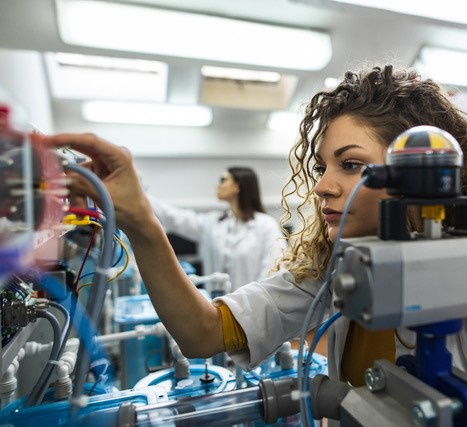If you are a post-16 student with an interest in advancing your knowledge and skills in the science sector, the Level 3 T Level in Science is designed for you. This course is ideal for students looking to prepare for skilled employment, higher education, or higher apprenticeships in various scientific fields. It provides a robust foundation in both theoretical knowledge and practical skills essential for the science industry.
What experience and skills will you gain?
During this T Level, you will study core scientific principles in addition to specializing in one of the following occupational areas:
- Laboratory Sciences Food Sciences Metrology Sciences
This specialized focus will equip you with specific skills tailored to your chosen field, preparing you for technical roles within these areas. The course combines classroom learning with real-world application, including a significant component of on-the-job training through industry placements.
-
Campus
This course will be delivered at London South Bank Technical College - Nine elms
-
What do you need to apply?
This course is open to students who have completed their GCSEs. While no specific prior knowledge of science is required, having studied science at Level 2 will be beneficial. Enthusiasm for the subject and a commitment to a career in science are crucial for success in this demanding course.
-
How will you be assessed?
Assessment within the T Level is rigorous and designed to ensure a comprehensive understanding of both core and specialist subjects:
- Core Components: Assessed through two written examinations and an employer-set project. These components test your broad and foundational scientific knowledge.
- Occupational Specialism: Assessed through synoptic assignments that focus on practical skills and real-world application in your chosen specialism.
You must pass both the core components and the occupational specialism to achieve this qualification.
-
Where can this course take you?
The Level 3 T Level in Science opens several pathways:
- Employment: Entry-level roles in your specialism, such as a laboratory technician, food technologist, or metrology technician.
- Higher Education: Progress to university studies in various scientific disciplines, potentially leading to careers in research, development, or more specialized scientific fields.
- Apprenticeships: Enter higher apprenticeships that combine working and learning, leading to professional qualifications and further career development.
Upon successful completion, this qualification can also provide UCAS points, supporting your progression to higher education.




